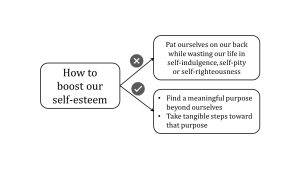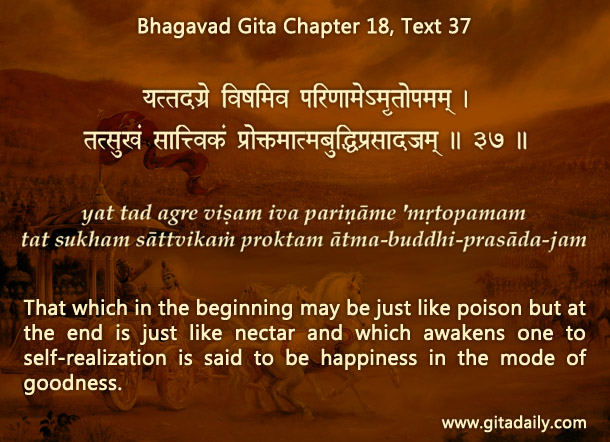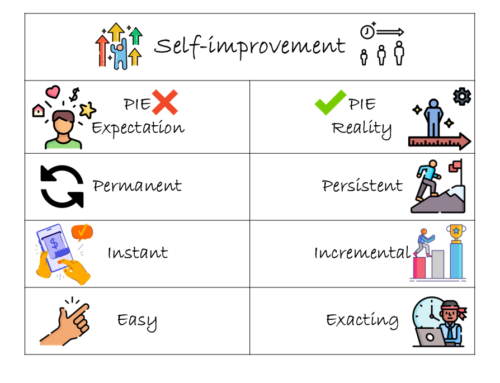 Suppose a person is suffering from a disease and is feeling gloomy. Suppose they assure themselves, “I am alright.” Such words may trigger some positive emotions, but words alone won’t cure. To actually become alright they need to take the prescribed medicine, even if it is bitter, and do the necessary exercise, even if it is difficult.
Suppose a person is suffering from a disease and is feeling gloomy. Suppose they assure themselves, “I am alright.” Such words may trigger some positive emotions, but words alone won’t cure. To actually become alright they need to take the prescribed medicine, even if it is bitter, and do the necessary exercise, even if it is difficult.
A similar dynamic applies to us if we suffer from low self-esteem. To boost our self-esteem, we may pat ourselves on the back while looking into a mirror and saying: “I am good; I am gifted; I feel great.” Such patting may stimulate some positive emotions, but it won’t address the underlying situations that led to our low self-esteem. Suppose we feel insecure because we are not doing anything worthwhile in our life. Suppose we are engaged mostly in self-indulgence (“I just want to enjoy”), self-pity (“I have no abilities; I am such a loser”) or self-righteousness (“I have so many good qualities and abilities — why don’t people value me?”). Patting ourselves on the back won’t change our self-obsession.
To address such a situation, we need to do two things: first, focus on a purpose that is meaningful for us; second, take tangible steps toward that purpose. To find a purpose, we don’t have to find something huge or world-changing; we can begin just by working on some small talent or interest that we have — and using it for contributing to something beyond ourselves. When we strive to do something worthwhile, we indirectly but inevitably push ourselves to become someone better in the process. By thus doing something valuable even if it is difficult, we earn our own respect.
Pertinently, the Bhagavad-gita (18.37) asserts that if we persist through the initial poison of getting out of ourselves, we will reach the eventual nectar of greater self-understanding, thereby tapping our potentials more effectively and further raising our self-esteem.
One-sentence summary:
Self-esteem comes not by patting ourselves on the back, but by progressing toward a purpose that makes our existence worthwhile.
Think it over:
- Why won’t patting ourselves on the back lead to self-esteem?
- What will actually lead to self-esteem?
- What can you do to boost your self-esteem?
***
18.37: That which in the beginning may be just like poison but at the end is just like nectar and which awakens one to self-realization is said to be happiness in the mode of goodness.
To know more about this verse, please click on the image



Yes, dive deep into our own projects.
We should be asking ourselves more often – …but what if I am right?
Good way to counter the inner critic.